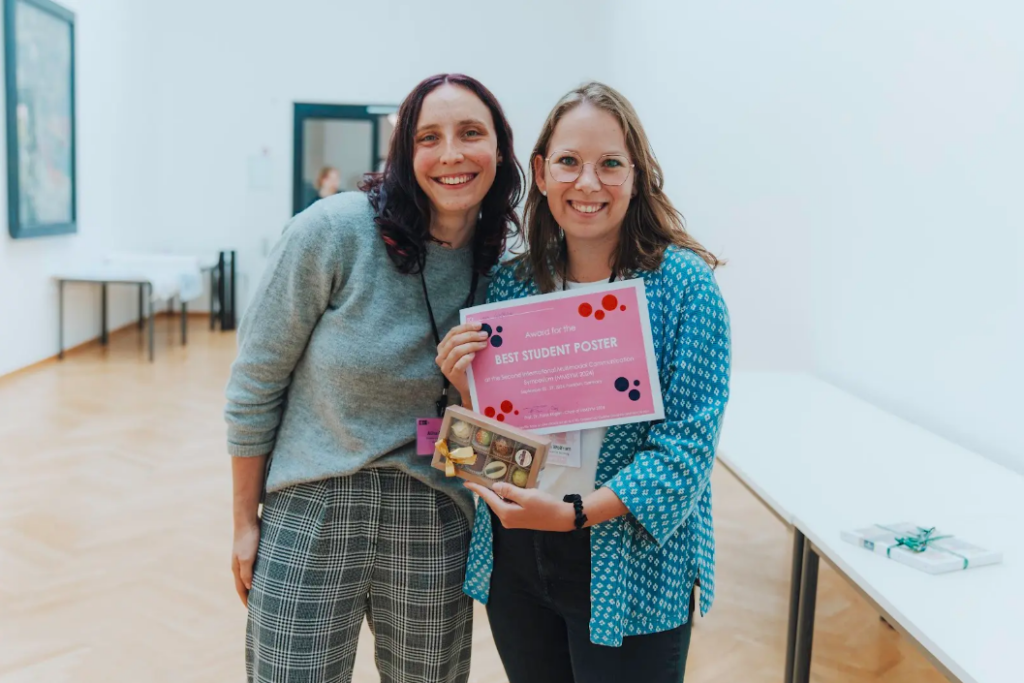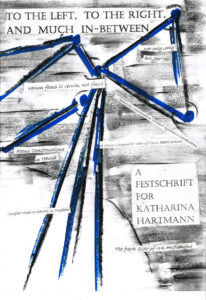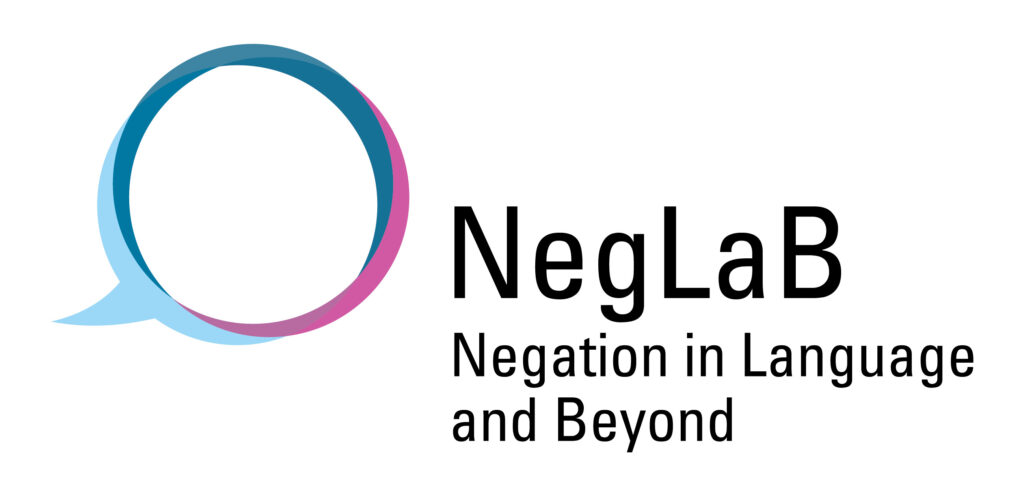Institut für Linguistik
Goethe-Universität Frankfurt
Welcome
Welcome to the Institute of Linguistics! On this website you can find all the important information about the institute.
Prosody, Sentence Comprehension and Negation
The workshop „Prosody, Sentence Comprehension and Negation“ will take place on Thursday, July 3rd, in the Eisenhower Room (IG 1.314).
We are delighted to welcome the following invited speakers:
-
Bettina Braun (University of Konstanz)
-
Anja Arnhold (University of Alberta)
-
Seunghun J. Lee (International Christian University & University of Venda)
Programme & Abstracts of the invited speakers
Sinn und Bedeutung 30 (SuB30) 2025 in Frankfurt 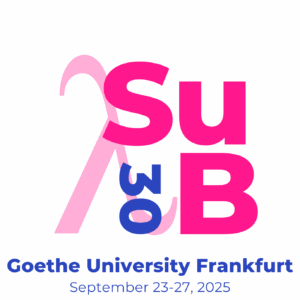
The 30th edition of Sinn und Bedeutung (SuB30) will take place at Goethe University Frankfurt from September 23–27, 2025, organized by the Semantics professorship.
The conference will feature:
- a three-day main session (September 24–26)
- two one-day special sessions:
For more information please visit https://vicom.info/sub30/.
Best student presentation of MMSYM 2024 is from Frankfurt
Employee and doctoral student Alina Gregori as well as Vera Wolfrum (Uni Würzburg) win the award for the best student presentation at this year’s MMSYM.
Best student presentation of Speech-Prosody 2024 is from Frankfurt
Employee and doctoral student Anna Preßler wins the award for the best student presentation at this year’s Speech-Prosody Conference.
Jacob and Wilhelm Grimm Prizes for International German Studies awarded to Ermenegildo Bidese
Ermenegildo Bidese (University of Trento) completed his habilitation in the Department of Modern Philology in Frankfurt in 2021. In 2024 he received the Jacob and Wilhelm Grimm Prizes for International German Studies from the DAAD.
End of Seminars = Start of Term Papers
With the conclusion of the lecture period, the work on the term papers begins. We kindly request all students writing term papers or theses in linguistics to follow our guidelines.
We celebrate Katharina Hartmann’s 60th birthday
During the birthday workshop “Syntax in Focus – A workshop in honour of Katharina Hartmann’s 60th birthday” we presented the festschrift in honour of Katharina on January 12, 2024: “To the left, to the right, and much in between“. It can be downloaded for free as an e-book (PDF) here.
We congratulate the Institute of Linguistics on the newly approved special research area NegLaB
From April 2024, the new DFG special research area “Negation in Language and Beyond” (SFB 1629 NegLaB) will start at Goethe University. The Institute of Linguistics is significantly involved in numerous projects at the SFB.
MA student Farbod Eslami Khouzani receives this year’s DAAD Prize
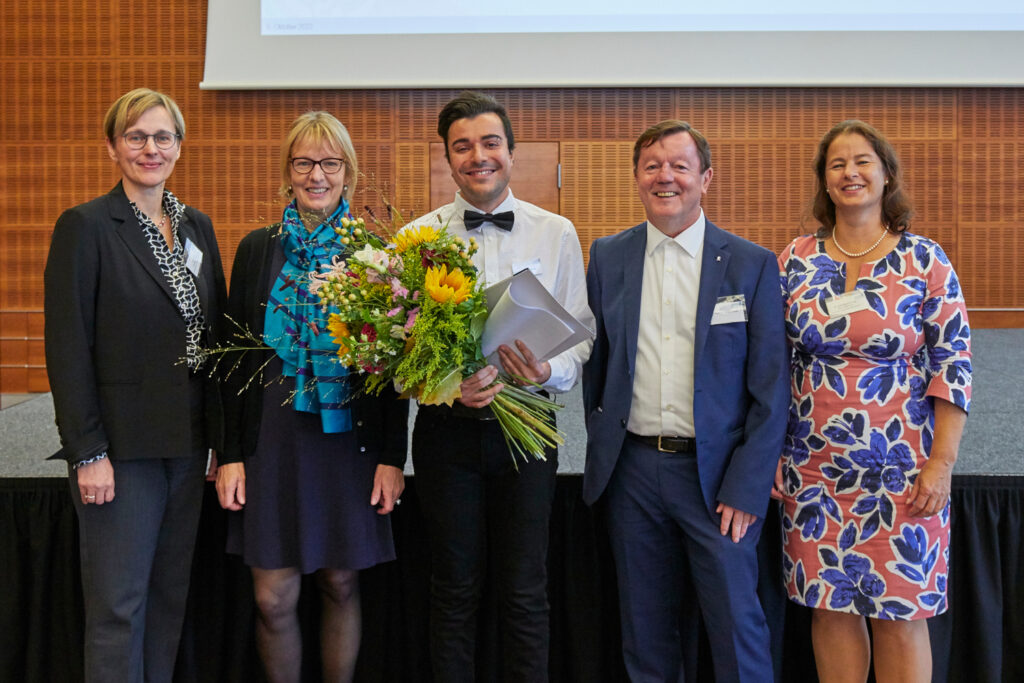
The MA linguistics student Farbod Eslami Khouzani (picture, middle) received this year’s DAAD Prize for international students on October 5th, 2023. His outstanding academic achievements as well as his social commitment were recognized. We congratulate him! More information
Prof. Katharina Hartmann and Prof. Frank Kügler nominated for the best doctoral supervision
The Goethe Research Academy for Early Career Researchers (GRADE) awards a prize every year for the best doctoral supervision. This year, two of the professors from linguistics have been nominated: Prof. Frank Kügler and Prof. Katharina Hartmann. More information
Information for freshman/beginners
- Paper work that cannot be done by e-mail can be deposited in the mail box “Hauspostfach 2” at the central mailroom (IG 257).
- Important websites with current information:
- Information about exams (no „Staatsexamen“):
https://www.pgks.de/
https://www.uni-frankfurt.de/73862497/ZPL___Aktuelles - Information for teachers (ABL):
https://lehrkraefteakademie.hessen.de/lehrerausbildung/pruefungsstellen/frankfurt-am-main/aktuelle-infos
- Information about exams (no „Staatsexamen“):
Studies
The Department of Linguistics at Goethe University Frankfurt offers in collaboration with the Department of English and American Studies, the Department of Psycholinguistics and the Teaching of German, and the Department of Romance Literatures and Languages two linguistic programs, a BA Linguistik taught in German and an MA Linguistics taught in English. In addition, the Department takes part in the BA Germanistik and in the Teacher Education Program.
Further information:
Research
Overview about the research at the institute
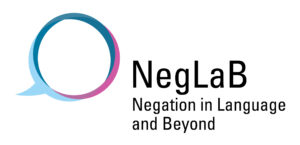 |
|
 |
The Institute of Linguistics, which is based in the Faculty of Modern Languages (FB 10), has special expertise in the fields of language structure (syntax and phonology), semantics and pragmatics, psycholinguistics (language acquisition, language processing), and historical linguistics, and represents known researchers. In addition, there are close contacts and cooperation with the linguists in the Institutes of English and Romance Studies, with philosophy (Faculty of Philosophy and History, FB 08), and the Institute for Empirical Linguistics (Faculty ofLinguistics and Cultural Studies, FB 09).
Besides the Institute of Linguistics, there is also research and teaching in linguistics in other institutes. More details can be found here:
- Institute of English and American Studies
- Institute of Psycholinguistics and Didactics of the German Language
- Institute of Romance Languages and Literatures
- Institute of Empirical Linguistics
The potential of the Frankfurt linguistics is especially in the realm of foundational research in linguistics. The active research is bundled in various projects.
Institute
The following professorships belong to the Department of Linguistics:
- Professur Historische Linguistik (Weiß)
- Professur Phonologie (Kügler)
- Professur Psycholinguistik (Bader)
- Professur Semantik (Ebert)
- Professur Syntax (Hartmann)
In teaching, the following professorships are affiliated to the Institute of Linguistics:
- Professur für die Didaktik der deutschen Sprache (Grimm, kooptiert)
- Professur für Philosophie (Fuhrmann, kooptiert)
- Professur für Spracherwerb (Schulz, kooptiert)
Talk by Nico Löffler (Frankfurt) in the Semantics Colloquium
We are happy to announce a talk by Nico Löffler (Frankfurt) in the Semantics Colloquium.
The talk will take place on campus in IG 4.301.
If you wish to participate virtually via Zoom, please contact Lennart Fritzsche for the link.
Date: July 3, 2025
Time: 4 pm – 6 pm c.t.
Title: The Meaning of the Russian Instrumental Case
Abstract:
The instrumental case is probably the hardest case of the Russian language to be analysed semantically. Up to approximately 20 distinct uses have been assigned to it. Among them are the agent in passive constructions, a tool used in an action, a timeframe, and a property of an individual. It is this great variation in uses that makes it hard to give a concise formal analysis of the Russian instrumental.
In my Bachelor’s thesis, I subsume the uses of the Russian instrumental under two distinct semantic classes and provide a syntactic and semantic analysis of each class. To achieve this, I preclude semantically deviant uses, namely internal arguments, frame-setting adjuncts, and two particular uses with special constraints on usage. Some uses turn out to be purely structural, but the remaining uses are associated with one of two classes. In the first class, the nominal phrase in the instrumental case expresses a causal meaning. In the second class, the instrumental expresses a secondary predication over another subject or object referent.
Talk by Sotaro Kita (Warwick) in the Semantics Colloquium
We are happy to announce a talk by Sotaro Kita (Warwick) in the Semantics Colloquium.
The talk will take place on campus in IG 4.301.
If you wish to participate virtually via Zoom, please contact Lennart Fritzsche for the link.
Date: June 26, 2025
Time: 4 pm – 6 pm c.t.
Title: Gesture, metaphor, and spatial language
Abstract:
I will discuss how co-speech (i.e., speech-accompanying) gestures relate to language and conceptualisation underlying language. I will focus on “representational gestures”, which can depict motion, action, and shape or can indicate locations (i.e., “iconic” and “deictic” gestures in McNeill’s 1992 classification). I will provide evidence for the following two points. Various aspects of language shape co-speech gestures. Conversely, the way we produce co-speech gestures can shape language. I will discuss these issues in relation to manner and path in motion event descriptions, clause-linkage types in complex event descriptions, and metaphor. I will conclude that gesture and language are parts of a “conceptualisation engine”, which takes advantage of unique strengths of spatio-motoric representation and linguistic representation.
Talk by Janek Guerrini (Frankfurt) in the Semantics Colloquium
We are happy to announce a talk by Janek Guerrini (Frankfurt) in the Semantics Colloquium.
The talk will take place on campus in IG 4.301.
If you wish to participate virtually via Zoom, please contact Lennart Fritzsche for the link.
Date: June 12, 2025
Time: 4 pm – 6 pm c.t.
Title: Exhaustivity in maps
Abstract:
Casati & Varzi (1999) propose a semantics for maps in which color patches work like predicates applying to map regions. For instance, the water marker covering a point on a map amounts to the claim “there is water in the real-world location referent of the map point”. Rescorla (2009) argued that the very treatment of maps as predicative is misguided because as soon as a marker appears on a map, its absence from a coordinate indicates that the corresponding location lacks the property denoted by this marker. According to Rescorla, predication in language is closer to Tarskian predicates, in that the truth of the sentence “Fido is a labrador” does not depend on whether Snoopy is in the extension of “labrador” or not. Theorists like Bronner (2015) have resisted this intuition, arguing that exhaustive interpretations in maps are the result of pragmatic strengthening.
Talk by Lennart Fritzsche (Frankfurt) in the Semantics Colloquium
We are happy to announce a talk by Lennart Fritzsche (Frankfurt) in the Semantics Colloquium.
The talk will take place on campus in IG 4.301.
If you wish to participate virtually via Zoom, please contact Lennart Fritzsche for the link.
Date: June 5, 2025
Time: 4 pm – 6 pm c.t.
Title: Modified head nods as a window into gradable commitment
Abstract:
An interlocutor that is committed to a proposition p takes on the liability for the truth of p (Krifka, 2014; Viebahn, 2021). According to commitment-based approaches to assertion (e.g., Peirce, 1903; Krifka, 2014), an interlocutor that asserts p commits themselves to p. In recent philosophical literature, the idea has emerged that commitment is gradable (e.g., Marsili, 2014). For instance, a speaker is intuitively more committed to p when they assert undoubtedly p rather than just p (Wiegmann et al., 2022). In a similar vein, within semantic theory, Greenberg and Wolf (2018) proposed to interpret speech act operators as gradable by equipping Krifka’s (2014) ASSERT operator with a degree argument. Evidence supporting this comes from intensified response elements. For example, Hebrew legamrey! (‘absolutely!’) is argued to indicate maximum speaker commitment (Greenberg and Wolf, 2019), while German voll! (lit. ‘full!’) conveys a high—but not maximum—level of commitment (Gotzner, 2022). However, experimental evidence supporting a gradable analysis of ASSERT is lacking.
In this talk, I present preliminary experimental evidence from visual communication, showing that intensified head nods shift the perceived speaker commitment to the truth of the assertion (in line with claims in descriptive literature, e.g., Wilbur, 2000 for ASL). I analyze such modified head nods in the spirit of Greenberg and Wolf’s (2018) gradable analysis of the ASSERT operator (Krifka, 2014), but with a twist to capture the gradient nature of these modifications. In addition, I consider a pragmatic alternative along the lines of Bergen’s (2016) theory of ‘noise-reduction’, following Schlenker and Lamberton’s (2021) application of this approach to intensification via brow raises in ASL.
Talk by Corien Bary and Harriet Yates (Nijmegen) in the Semantics Colloquium
We are happy to announce a talk by Corien Bary and Harriet Yates (Nijmegen) in the Semantics Colloquium.
The talk will take place on campus in IG 4.301.
If you wish to participate virtually via Zoom, please contact Lennart Fritzsche for the link.
Date: May 22, 2025
Time: 4 pm – 6 pm c.t.
Title: fEMG as a window into conversational commitments: validating the method and further applications (joint work with Bob van Tiel and Peter de Swart)
Abstract:
This presentation explores the assignment of commitments in conversation. While theoretical work has explored the range of commitment-bearing acts, key questions remain unresolved, such as the role of addressees, the gradability of commitment, and the effect of evidentials. To empirically address these questions, we propose facial electromyography (fEMG) as a novel method in this field, to detect implicit affective reactions to commitment violations. We present our proof-of-method study which demonstrates that commitment violations elicit strong ‘frowning’ corrugator muscle activation (associated with negative affect). In an ongoing follow-up study we apply this method to measure the effect of reportative evidentiality. Specifically, we test whether indicating hearsay evidence for one’s claim modulates perceived speaker commitment and whether the syntactic form (here, embedding vs. parenthetical constructions) makes a difference. The findings highlight fEMG’s potential to uncover subtle norms in conversation, with implications for pragmatics, semantics, and multimodal communication.


